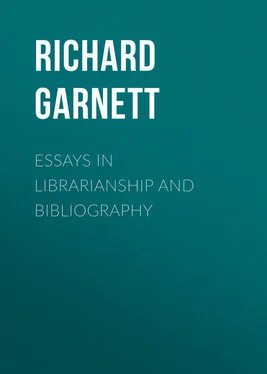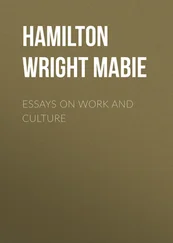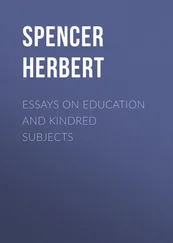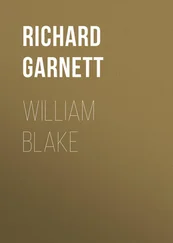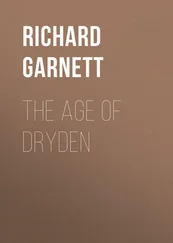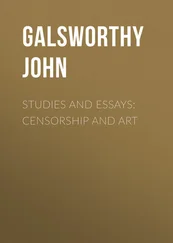Richard Garnett - Essays in Librarianship and Bibliography
Здесь есть возможность читать онлайн «Richard Garnett - Essays in Librarianship and Bibliography» — ознакомительный отрывок электронной книги совершенно бесплатно, а после прочтения отрывка купить полную версию. В некоторых случаях можно слушать аудио, скачать через торрент в формате fb2 и присутствует краткое содержание. Жанр: foreign_antique, foreign_prose, на английском языке. Описание произведения, (предисловие) а так же отзывы посетителей доступны на портале библиотеки ЛибКат.
- Название:Essays in Librarianship and Bibliography
- Автор:
- Жанр:
- Год:неизвестен
- ISBN:нет данных
- Рейтинг книги:4 / 5. Голосов: 1
-
Избранное:Добавить в избранное
- Отзывы:
-
Ваша оценка:
- 80
- 1
- 2
- 3
- 4
- 5
Essays in Librarianship and Bibliography: краткое содержание, описание и аннотация
Предлагаем к чтению аннотацию, описание, краткое содержание или предисловие (зависит от того, что написал сам автор книги «Essays in Librarianship and Bibliography»). Если вы не нашли необходимую информацию о книге — напишите в комментариях, мы постараемся отыскать её.
Essays in Librarianship and Bibliography — читать онлайн ознакомительный отрывок
Ниже представлен текст книги, разбитый по страницам. Система сохранения места последней прочитанной страницы, позволяет с удобством читать онлайн бесплатно книгу «Essays in Librarianship and Bibliography», без необходимости каждый раз заново искать на чём Вы остановились. Поставьте закладку, и сможете в любой момент перейти на страницу, на которой закончили чтение.
Интервал:
Закладка:
The solution of these perplexities will be found, we think, in a strict adherence to the principle that administrative arrangements must primarily have respect to the advantage of the institution, which will in the long run prove to be the advantage of the public. The Museum is not bound to undertake the publication of an enormous printed catalogue merely for the convenience of persons at a distance; but it will introduce print in so far as print tends to economise its own funds, and to obviate confusion and encumbrance in its own rooms. The two vital points are to stop the waste incurred by transcribing what must ultimately be printed, and to put an effectual check upon the portentous growth of the catalogue. The first object may be attained by simply resorting to print for the future, and pasting the printed slips into the catalogue as the MS. slips are pasted now. The second can best be accomplished by tolerating the mixture of printed and MS. slips in each volume of the catalogue, until the volume has arrived from constant accessions at such a bulk as to require breaking up, then printing the MS. entries in that volume, and profiting by the economy in space of print over MS. to rearrange the contents in double columns, which would afford room for additions for an indefinite period. In this manner the cost of printing would be spread over a long series of years, and the catalogue would insensibly be transformed into a printed one by much the same process as that by which Sir John Cutler's worsted stockings became silk. Any requisite number of printed slips might be produced, and offered by subscription to public institutions and private individuals. The former might thus in process of time acquire the whole catalogue without any violent strain upon their resources; the latter might procure what they wanted without being compelled to take what they did not want. It would at the same time be beneficial to the Museum and to literature, if some of the most important articles were printed entire and brought out as soon as possible for the sake of relieving the pressure upon the catalogue. Such articles as Bible, Shakespeare, Luther, Homer, embracing nearly complete bibliographies of the respective subjects, would probably command a fair sale, and effect something towards diminishing the inevitable cost of print.
The formation of a subject index to the Alphabetical Catalogue is a matter of much less urgency to the Museum itself, but one of even greater importance to the public. It could not be undertaken without special assistance from the State, but would probably repay its cost in a great degree, and has in any event the very strongest claims upon the support of an enlightened government. It is moreover much less formidable than appears at first sight. We have already explained how the way for a more exact classification has been prepared by arranging one copy of the catalogue in the order of the shelves. The apparent magnitude of the task is further diminished by the following considerations: 1. It requires no cross-references. 2. Titles may be abbreviated to the utmost. 3. It can be temporarily suspended upon the completion of any section. 4. The section of biography is classified already, merely requiring the cross-references from the subjects of biographies to be brought together; and several other extensive sections need not be classified at all. Nobody, at least nobody worth taking into account, wants catalogues of the titles of novels, plays, and sermons. Classified lists of some other subjects, on the other hand, would be of inestimable value, and there is one which, in the interests of the Museum itself, should be undertaken without delay. Among the inconveniences attending the ill-considered removal of the Natural History collections to South Kensington – a measure forced on by the Government against the wish of the working Trustees of the Museum – is the injury likely to be inflicted upon them from want of access to a library. Naturalists cannot study without books any more than without specimens; but the Government which gratuitously created the want seems in no hurry to supply it. The principle of a grant appears indeed to be admitted; but at the rate at which this grant seems likely to be doled out, English Natural Science will be placed at a serious disadvantage for many years. Something may possibly be done by transferring duplicates from Bloomsbury (a question, however, not to be decided in haste), and some anonymous writers in scientific journals have modestly suggested that all books on Natural History might go to Kensington; so that a student of the physiology of colour, for example, would have to read his Wallace at one end of the town and his Tyndall at the other. We should, however, just as soon expect Parliament to decree on similar grounds the cutting of the zoological articles out of the encyclopædias as to enact that the national library of England should be the only professedly imperfect library in the world. Indeed the argument cuts two ways, for if it is fair that the mineral department should have Cresconius Corippus to illustrate its gems, it must be equally fair that the library should have the mineralogist's gems to illustrate its Cresconius Corippus. Until then, the Natural History departments can acquire a library of their own, it must be desirable for them to possess a catalogue of everything relating to their subjects extant in the British Museum. An abridged list, classified according to subject, might be speedily furnished if Government would provide the compilers, and would be an invaluable boon to the scientific world at large, abroad quite as much as in England. Scientific authorities, of course, would be consulted respecting the principles of classification, and we may take this opportunity of repeating that while probably no subject-index has been or can be free from inconsistency and ambiguity, none has ever been too bad to be useful. That a high degree of excellence is attainable is shown by Messrs. Low & Marston's alphabet of subjects to the London Catalogue. The meritorious compiler, we should suppose, can hardly have seen all the books he indexes; yet, so far as we are aware, he has only committed one positive error, the very pardonable one of enumerating Mr. Gosse's "On Viol and Flute" among works on musical instruments.
In connection with the subject of classification, reference should be made to the excellent classified catalogue of manuscripts prepared by the present Principal Librarian when keeper of the MS. department. It is not yet printed or entirely complete, but is sufficiently advanced to be exceedingly serviceable. Like most of Mr. Bond's reforms, it has been achieved so quietly and unostentatiously, with no help from paragraphic puffery, that few know of it except those whom it actually concerns. The scholar goes to the Museum with no expectation of finding any such aid to his pursuits, and hardly realises the boon until he finds himself profiting by it. A perfect contrast in every point of view is afforded by the remarkable proposal emanating from the Society of Arts that the Museum should make and publish a catalogue of English books before 1641, or just the period when books were beginning to be useful. The project bespeaks a very imperfect appreciation of the needs of the institution and the public. When the great problem of the Museum is to diminish the pressure on its space, it is proposed to afflict it with yet another catalogue. When the public is crying out for classified lists as aids to knowledge, it is offered an alphabetical list with no attempt at classification, and containing nothing worth classifying. When libraries are becoming more and more valuable in proportion as they subserve educational purposes, it is proposed to employ money and labour in telling a few specialists what they already know. When the overworked library is unable to discharge some of its most obvious duties, it is proposed to detach not a little of its best strength for an utter superfluity. Not only are new books to remain uncatalogued, but even the final revision of the old books is to be delayed indefinitely, that what has been already catalogued may be catalogued again. 5The project would hardly demand discussion, but for the possibility that it may after all be forced upon the Museum, notwithstanding its repugnance to the common-sense of the late and the present Principal Librarian. If ridicule could kill, it could hardly have survived the discussion which arose among its advocates at the late Oxford Conference. Those external to the Museum suggested that the Museum should catalogue not only the old English books it possessed, but also those it did not possess. The Museum representatives, enamoured with the project as they were, pleaded that it would be unreasonable to expect them to describe what they had never seen. The other side concurred, but represented in turn that a catalogue of such English books only as happened to be in a particular library would be very imperfect, and of very little use. Having thus mutually demonstrated the unreasonableness of the proposal from one point of view, and its inutility from another, they agreed that it should by all means be persevered with, and went home.
Читать дальшеИнтервал:
Закладка:
Похожие книги на «Essays in Librarianship and Bibliography»
Представляем Вашему вниманию похожие книги на «Essays in Librarianship and Bibliography» списком для выбора. Мы отобрали схожую по названию и смыслу литературу в надежде предоставить читателям больше вариантов отыскать новые, интересные, ещё непрочитанные произведения.
Обсуждение, отзывы о книге «Essays in Librarianship and Bibliography» и просто собственные мнения читателей. Оставьте ваши комментарии, напишите, что Вы думаете о произведении, его смысле или главных героях. Укажите что конкретно понравилось, а что нет, и почему Вы так считаете.
